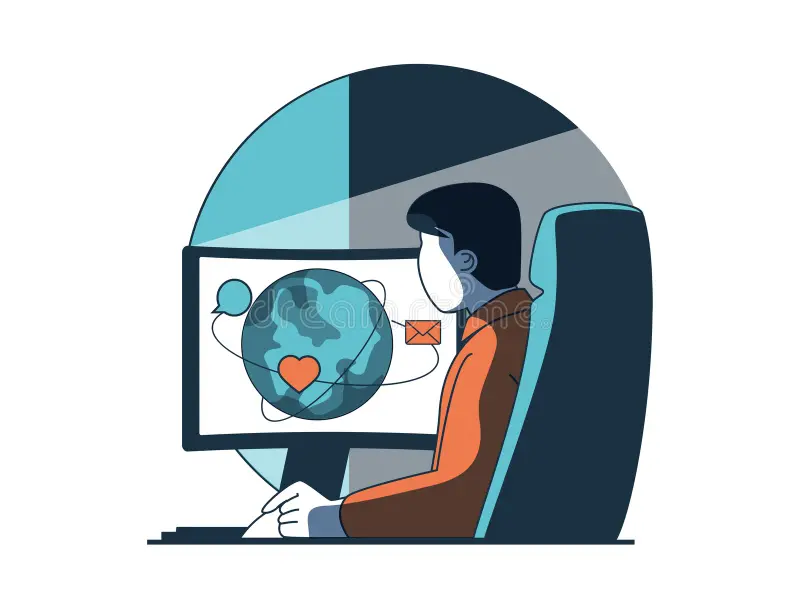
Top Ten Things – Internet addiction has sparked endless debate—are we truly addicted, or has the internet become essential? In today’s world, daily life seems incomplete without it. From shopping to studying, everything runs online. Many feel lost without access. Yet others lose control entirely, scrolling endlessly. So, is this concerning or simply a natural part of modern life? The answer may depend on how we each choose to engage.
First, let’s look at daily habits. You wake up and check your phone. Before bed, you’re still glued to the screen. As a result, routines begin to break down. Important tasks get pushed aside. Focus scatters across dozens of apps. Even meals become moments for scrolling. What was once quiet time becomes digital time. Eventually, screen habits start shaping your entire day.
“Read More: ips for Growing Thick Eyebrows, Natural Care from Professional Makeup”
Yes, the internet makes staying in touch easier. However, that doesn’t always mean deeper connection. Online chats often replace real conversations. Friends text more but meet less. Eye contact disappears. Moreover, we begin to rely on emojis to express feelings. Although we know what friends are doing, we rarely know how they truly feel. Real connection fades, replaced by notifications.
Digital life also transformed how we work and learn. For example, emails now replace meetings. Zoom calls replace classrooms. Documents float in the cloud. While this offers flexibility, it also blurs boundaries. On the one hand, we can work from anywhere. On the other hand, home turns into an office. Breaks feel like stolen moments. As a result, burnout becomes more common.
“Read About: Animal Kingdom Wonders: Top 10 Unusual Creatures”
You tell yourself: just five minutes. But then an hour disappears. One video leads to another. The algorithm pulls you in. Consequently, it becomes hard to stop. Midnight arrives, but you’re still scrolling. Mentally, you feel tired. Yet you keep going. In truth, doomscrolling isn’t rest—it’s digital numbing. And often, it replaces sleep.
Furthermore, this habit affects your well-being. Blue light disrupts sleep. Notifications create anxiety. Social comparison chips away at confidence. You scroll through perfection and feel like you’re behind. Additionally, constant updates make it hard to slow down. The brain stays overstimulated. Peace becomes rare. Eventually, even silence feels uncomfortable.
Many stay online not for fun, but for fear. This fear of missing out—or FOMO—is real. You want to stay updated. You don’t want to miss a trend, meme, or message. Moreover, group chats move fast. If you disconnect, you fall behind. So, you scroll to stay visible. Sadly, presence becomes pressure.
Children are growing up with screens. Tablets replace blocks. YouTube replaces storytime. At first, it seems harmless. However, too much screen time affects development. For example, attention spans shrink. Sleep routines fall apart. Creativity suffers. Real-world play gives way to passive watching. Instead of imagining, kids just consume.
Of course, it’s not all negative. In fact, the internet often saves time. For instance, you can order food in minutes. Bills get paid in seconds. Lost? Maps guide you instantly. Tasks that once took hours now take minutes. So, for many people, the web adds convenience. Used wisely, it helps life run smoother.
Especially during tough times, the internet has been a lifeline. For example, during lockdowns, people stayed connected through screens. Families talked on video. Students kept learning. Support groups moved online. While not perfect, it helped reduce loneliness. In moments of crisis, digital tools kept people going. Connection—even virtual—still mattered.
Ultimately, the internet itself isn’t the problem. But how we use it is. If we lose control, addiction follows. However, with limits and awareness, the web becomes a helpful tool. Use it to learn, to work, to connect—but don’t let it take over. The key is balance. Either you master it, or it masters you.